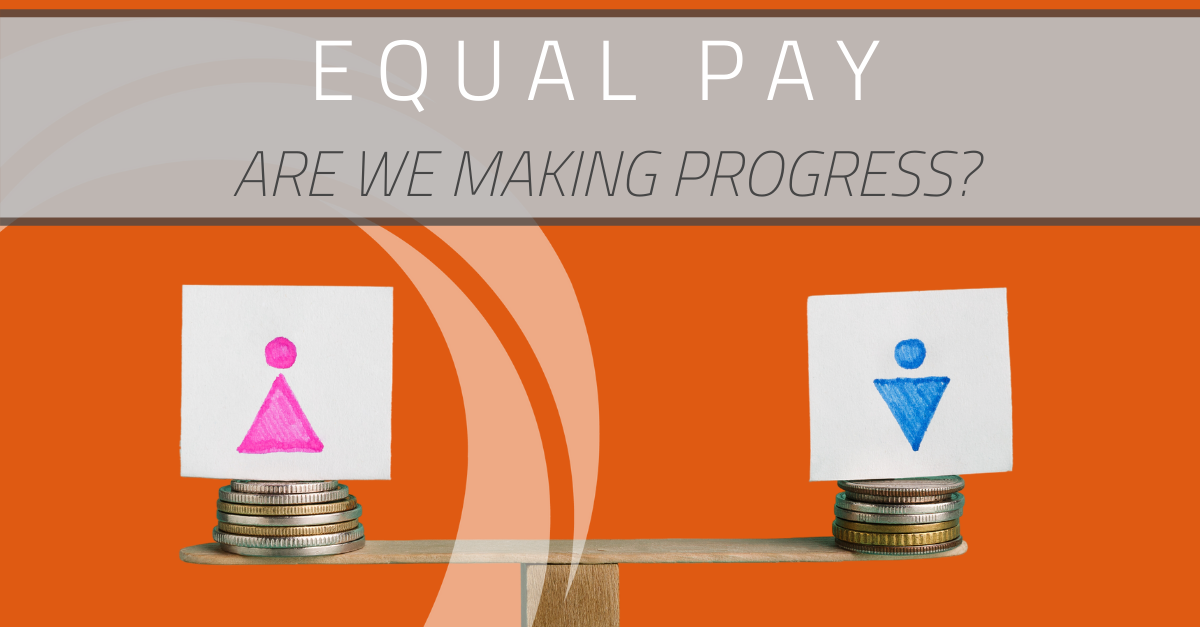As I write this blog, I see in the news that following an Equal Pay investigation at the BBC, Zoe Ball will receive a £1 million pay rise whilst Huw Edwards and Alan Shearer salaries are to be reduced. It has also been reported that the organisation has given pay rises to more than 700 female employees since the extent of the equal pay gaps were uncovered. There have been similar wage adjustments across some well-known organisations over the past year which leads one to conclude that this type of action is likely to be the tip of a very large Equal Pay iceberg.
It is clear Equal Pay remains a large business risk for many employers. According to new research by the law firm DLA Piper, employment tribunals in England and Wales have received more than 368,000 complaints relating to equal pay since the 2007-08 financial year, an average of almost 29,000 complaints a year. Through the analysis of Ministry of Justice (MOJ) data, DeltaNet International uncovered the top reason people take their company to an employment tribunal was in relation to the Working Time Directive (160,299 cases) closely followed by Equal pay (115,359 cases). This is unsurprising given tribunal fees were abolished on 26 July 2017.
The Legislative Landscape
The Equal Pay Act of 1970 (superseded by Part 5, chapter 3, of the Equality Act 2010) turned 50 this year and yet the consistently high number of employment tribunal claims indicates that this is an issue which some employers are still struggling with.
Recently the Vice-Chair of the law firm’s Women’s Committee, Lara Kennedy, reflected on the act and outlined what she believes needs to happen to bring about real and lasting change. This ranged from bringing back statutory discrimination questionnaires, ending the stigma around conversations about pay, forcing employers to interrogate their pay structures and making Equal Pay Audits compulsory (currently tribunals can only order an employer to undertake an equal pay audit if they are found to be in breach of equal pay law). Making these audits compulsory would certainly be a significant step forward.
Our Experience in Equal Pay
Perception Versus Reality
While most organisations have a ‘gut feel’ that they do not operate discriminatory pay practices, it is almost impossible to make a proper assessment without conducting the right pay tests and the only way to do this is to undertake an Equal Pay Audit.
Typically, the audits we have conducted to date uncovered some issues with unfair pay practices (i.e. pay differences that cannot be explained by performance or market pay factors) around male/female groups and /or different protected characteristics. Whilst most organisations we worked with expected to see some gaps, many were genuinely surprised to discover the extent of the risks highlighted. As a general rule, larger volumes of equal pay risks were found in organisations without a formal job evaluation system (thus lacking a robust, consistent, gender neutral method for assessing and comparing the value of different jobs which is a vital component in tracking equal pay practices).
Where to start
1. Confirm the Scope
If embarking on an initial Equal Pay Audit, it is important to recognise that employees have the right to bring an equal pay claim on any of nine protected characteristics (age, disability, gender reassignment, marriage and civil partnership, pregnancy and maternity, race, religion or belief, sex, and sexual orientation) under the banner of ‘Direct Discrimination’. Most organisations have readily available data on gender and age so as a starting point we recommend conducting tests against these characteristics with a commitment to building greater volumes of data around the remaining characteristics.
2. Gather the data
Equal Pay audits focus on all aspects of remuneration, it not simply enough to test according to Base Pay or Variable Pay. Our recommendation is to involve finance, payroll and any other personnel dealing with remuneration to determine what data will be required. Understand all your remuneration components, typical elements include:
- Base Pay
- Overtime
- Location or area allowance
- Shift premium
- Car allowances
- Standby allowance
- Clothing allowance
- First-aider allowance
- Fire-warden allowance
- Market supplements
- Pay for piecework
- Relocation allowance
- Benefits in Kind
- Recognition payments
- Bonus pay which includes remuneration in the form of money, vouchers, securities, securities options, or interests in securities and relates to; profit sharing, productivity, performance, incentive or commission, recruitment or retention allowances/ ‘Golden hellos’, ‘refer a friend’ payments or long-service awards.
3. Run the tests
Follow the tests recommended by the EHRC i.e. Pay Gaps by Gender and Grade and Gender and Function, Distribution of Pay by Gender according to Grade and Function, Equal Pay for Like Work Test 1: Are men and women in similar roles at the same grade and job title are being paid equally? And Equal Pay for Like Work Test 2: Are men and women at the same grade in the same function being paid equally?
Analysing data in different ways, by internal grade or by department, provides more clarity and understanding of the overall gap, and helps to identify where within the organisation the gap is more prevalent. Cutting the data in a variety of different ways and really drilling down and understanding the reasons e.g.by combining data such as work location/postcode, function/business unit, grade/level and bonus eligibility can be eye opening
4. Conduct Further Tests
Whilst running the recommended EHRC tests is an essential starting point for any organisation embarking on an Equal Pay Audit, a thorough Equal Pay audit will involve the application of deeper dive analytics across the spectrum of reward practice and processes. The types of things organisations should be examining include:
- A lack of transparency and unnecessary secrecy over grading and pay
- Any discretionary pay systems
- Significant pay activity outside of the Annual Pay Review – ‘The Grey Economy’
- Different terms and conditions for different groups of employees
- Inconsistency in the setting of new starter salaries
- More than one grading and pay system within the organisation
- Long pay scales or ranges
- Overlapping pay scales or ranges, where the maximum of the lower pay scale is higher than the minimum of the next higher scale, including ‘broad- banded’ structures where there are significant overlaps
- Managerial discretion over starting salaries
- Market-based pay systems or supplements not underpinned by job evaluation
- A job evaluation system which has been incorrectly implemented, unaudited or not kept up to date
- Pay protection policies
5. Consider Further
- How consistent is your application of pay policy when setting starting salaries for new employees?
- Do you operate pay protection scheme and are you confident there is no discriminatory practice within the scheme?
- Do you have red/green circled employees and if so, what is the criteria for setting this? Is it free from bias?
- Can you confidently say that there are no barriers to promotion and progression for females within your organisation?
- Do your career progression plans factor in career breaks for women?
- Are females being given the opportunity to remain with the organisation and progress their careers, thus earning capacity?
- Is there a risk that certain functions are dominated by a largely male management layer who could perhaps be incapable of structuring their teams in a way that encourages flexible working, part timers?
- Do you monitor the starting pay of females to males? Who audits the process?
- How confident are you that annual promotional reviews are carried out in a fair and equitable manner? Are there areas for improvement in terms of managing promotions? Is there too much manager discretion?
- Are you comfortable with how many women were promoted within the past 2-3 years and does this compare favourably with your overall organisation’s gender composition
- Have you audited according to gender the ratio of males to females being promoted in any given year or looked at it by manager to uncover any potential gender bias?
- How is the impact on those on career breaks pay monitored and progressed?
- Are the performance ratings audited regularly to ensure a broad consistency across functions/roles/line managers?
By unravelling and fully examining these areas it is only then that you can be truly confident that any unequal pay practices are being unearthed and monitored thus allowing for true progress to be made. Most importantly the tests and investigative actions described above sends out a clear message to current and prospective employees namely that as an organisation you aren’t paying lip service to the idea of Equal Pay but that you are committed to:
- complying with the law and good practice.
- the actions required in identifying, explaining, and eliminating unjustifiable pay gaps.
- having rational, fair, and transparent pay arrangements.
- fairness and equity to employees.
- your values, to your employees, and other key stakeholders with whom you do business.
We have over 18 years of experience in running bespoke Equal Pay Audits. This includes providing detailed equal pay analysis to a diverse range of organisations such as the British Medical Association, Innocent Drinks, Southern Housing, Boots plc, the Crown Estate, and Kingston Council. We have also worked extensively on Gender pay audits since the introduction of the UK Gender Pay reporting regulations and in a wider context worked with a cross parliamentary group in Ireland to help them prepare for the introduction of gender pay gap legislation in the Irish market.
If you are considering an Equal Pay Audit or just want to have an exploratory conversation about the issues you may be facing, we would love to hear from you; please call us on +44 (0)20 3457 0894 or email emer.bucukoglu@innecto.com.

 As I write this blog, I see in the news that following an Equal Pay investigation at the BBC, Zoe Ball will receive a £1 million pay rise whilst Huw Edwards and Alan Shearer salaries are to be reduced. It has also been reported that the organisation has given pay rises to more than 700 female employees since the extent of the equal pay gaps were uncovered. There have been similar wage adjustments across some well-known organisations over the past year which leads one to conclude that this type of action is likely to be the tip of a very large Equal Pay iceberg.
As I write this blog, I see in the news that following an Equal Pay investigation at the BBC, Zoe Ball will receive a £1 million pay rise whilst Huw Edwards and Alan Shearer salaries are to be reduced. It has also been reported that the organisation has given pay rises to more than 700 female employees since the extent of the equal pay gaps were uncovered. There have been similar wage adjustments across some well-known organisations over the past year which leads one to conclude that this type of action is likely to be the tip of a very large Equal Pay iceberg.









